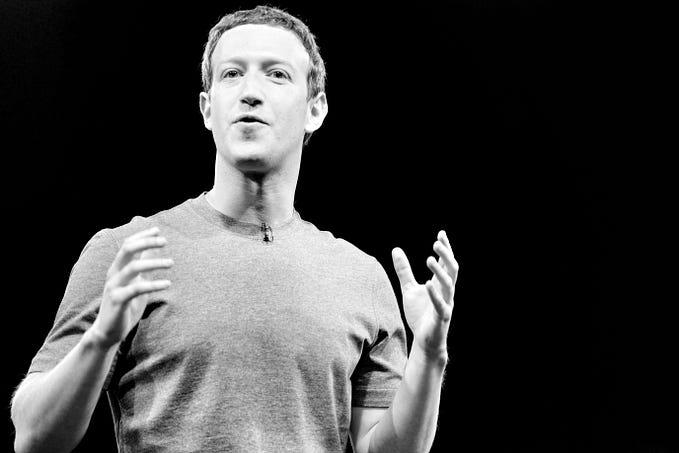Five things scientists can do to fight the rise of fascism.
Access to trustworthy information is among the most important preconditions for safeguarding democracy.

As of today, the US National Institutes of Health are on lockdown. No travel, no meetings, no further disbursements or spending of their nearly $50 billion annual budget. This is a nightmare scenario — for the science actively being done, for the treatments being developed and tested, and for the institutes and universities whose budgets will be upended. This has the potential to grind the US research and higher education sectors to a halt.
Trump also froze external communications from the US Department of Health and Social Services, the Centers for Disease Control, and the Food and Drug Adminsitration. Many articles will be written about the fallout. What this means for cancer research, for example, or for pandemic preparedness and state economies. No doubt it will be bad and lasting. So I want to talk about things we can do to push back.
“We” being scientists.
To understand what we might do, we need to be clear about what they are doing. They are pursuing power, power over all aspects of our lives and society writ large. There’s no disputing that anymore. Call it fascism if that helps you understand it, but the end game is power, and the specific geopolitics of how they secure it, whether through a cult of personality or “strong man” coercion is, IMO, somewhat secondary to the point.
A key tool in their democracy-to-not-democracy conversion kit is controlling the information people have access to: controlling it by undermining the institutions people trust, by clouding facts with alternative narratives and interpretations, and by limiting people’s access through censorship, manipulation, and intimidation.
This is what their assaults on the NIH and our public health and science institutions in general are all about: dismantling the most robust systems in the world for producing and sharing information. Imperfect as it is, the scientific apparatus of the west is not easily manipulable, and it has been relatively resistent to political whims about climate or reproductive biology. Science is, well, woke. So to them, that means it needs to be shut down.
Their strategy is quite literally about controlling reality. Freezing the NIH. Sowing mistrust in the media. Musk buying Twitter. Staging a public opinion blitzkreig against universities (i.e., Rufo) and public health institutions (i.e., RFK Jr.). These are all part of the same long game.
The same long game that the Nazis were playing by burning books and eradicating anything they deemed contrary to their imagined world order.
But it isnt enough today to burn books. Our venues for engaging sharing our ideas and engaging with the ideas of others are far more numerous and sophisticated than they were a couple of decades ago. Not only do we have a tremendously empowered global scientific community that is increasingly attentive to the ever-present fingerprint of social structures and opressions in all aspects of our lives, we also have digital and mobile technologies that allow us to access scientific information in multiple formats and languages. And we have a globally connected computing infrastructure that can support social interaction and collaboration at a scale and order of magnitude never before experienced by our species.
In theory, this combination of science and information and connectivity and technology should be unmatched in its emancipatory potential. So it should come as no surprise that the powerful few with a vested interest in ending the democratic project would wage an all out war to disrupt our ability to realize the potential of these technologies and institutions.
Elon Musk acquired and then gutted Twitter not because he is a free speech absolutist but because he saw the platform as a risk to his own world-building ambitions. And now he’s targeting Wikipedia; not because he can’t control what appears in his own entry, but because Wikipedia iteself is an undeniably successful example of social innovation for collective curation and protection of “truth.” And what’s more, it is a gift economy, one that generates more shared wealth than private enterprise could ever hope to create.
Our collective and state-based institutions for health and science are just as much of a threat. And this was perhaps never clearer than during the first year of the COVID-19 pandemic. I know, there are tons of debates and finger pointing out there about who did what right and wrong, but if you think back to those first few months, a number of things were working, and some countries fared specatcularly well. People were finding ways to share information about how to adapt. Lockdowns and social distancing were slowing the spread. Public investment in science produced tremendously effective vaccines.
Until people got scared into hoarding toilet paper. Until people were led to feel persecuted by mask mandates. Until they were told to question the science behind public health measures and the intentions behind the scientists and frontline workers working tirelessly to care for us and find solutions.
It was an opportunity for strong public institutions to deliver on their promise. But if they did, it would be an existential threat to folks like Musk, would be oligarchs who know full well that the ideal neoliberal society they envision, one where a handful of wealthy and powerful corporations control the world order, can only be achieved in a wholly libertarian body politic. They need the institutions to fail spectacularly.
They know that the science is not behind them. They know that the people are not behind them. They know that their way is worse for most. So they’re using the now tried-and-tested methods of counter-insurgency to undermine the surge of liberal democracy and global governance that started to spread around the world in the 20th century and could very well have come to fruition at the hands of coalitions empowered by an open internet and mobilized around the grand unifying challenges of pandemics and cliamte change.
Their answer? Buy it. Corrupt it. Disparage it. Bankrupt it. Sabotage it. Burn it all to the ground.
So what can we do? As scientists, I mean. Because there are lots of things that we can do as citizens — we can protest, we can engage in disruption and civil disobedience, we can organize around our aspirations and resist based on our convictions. All of these of course are available to scientists and I encourage them all. But like Liam Neeson, scientists also have “a special set of skills” that we can bring to this moment.

In formulating this list, I have to acknowledge that the world of science communication is rather dyfunctional and fractured right now, which means we’re working in less than ideal circumstances. Large publishing houses like SpringerNature and Elsevier hold a veritable monopoly on peer review publishing, and put ridiculously heavy price tags on open access publishing. And universities are already on the defensive because of assaults on critical and liberal studies and antiracist and antioppressive policies. It became a cottage industry for a while there for the New York Times to publish sympathetic profiles of racists feeling uncomfortable on college campuses. So, numerous university administrators and faculty members alike are trying a whole lot to make like Homer Simpson in that GIF and disappear into that bush. The turn we saw among numerous universities around the work in the early 2000s towards doing science for society is being rapidly undone.

So maybe as scientists we’re being caught on our back foot, so to speak, but that doesn’t mean we don’t have some important opportunities to not only hold the line but use our science to be disruptive to their totalitarian and supremacist designs.
Here are five that seem particulary strategic to me, some requiring a bit more swagger than others:
1. Contribute to Wikipedia
And I don’t mean with money (but do that too). As I already said, Wikipedia is perhaps the most successful example of distributed social innovation in the world. It isn’t owned, can’t be owned, and proves that collective, democratically organized action can produce high value social infrastructure. Anyone can add to or revise Wikipedia articles. Search up the articles that are in your area of expertise. Check if they need updating or correction. Are there critical new findings that should be reflected? If your subject area is a politically contested one, like reproductive biology or climate change or vaccines, there is likely a section or entire separate article on public denialism or controversy. There is so much nonsense out there being thrown around as science for political gain. Do what you can to make sure these articles continue to reflect the best available science and social science. You can also set notifications on Wikipedia articles, so you get an email if someone else changes them. Participate in the dialogue when there are disputes. Help make each entry as good as it can be.
2. Become active in the r/science and r/askscience subreddits
R/Science is a Reddit channel for sharing new science publications in any area of natural or social science. R/askscience is full of people looking for answers to really good inquries. 34 million people subscribe to r/science and 26 million subscribe to r/askscience. For the former, moderators are all verified scientists, and any scientist who wants to can be verified to join the moderation team. I know from experience that sharing and engaging here reaches people. It elevates science. These are online spaces that have established trust with their user base. But that is only sustainable if we lean in.
3. Join Bluesky
At its height, Twitter was a fantastic place to share, discover, and discuss science. While the platform and algorithm increasingly favoured contentious debate over high quality sharing, the science community was particularly vibrant. Of course that’s all toast now thanks to Elon Musk. The good news, however, is that Bluesky, the new distributed social platform, has a wonderful and growing science community. Don’t believe the centrist contrarians — Bluesky is not the far left analogue of Truth Social. People there simply don’t conflate freedom of speech with freedom to be heard, and neither do they hesitate to not tolerate intolerance. There is a very diverse set of communities finding their place on Bluesky. And unlike Twitter, Bluesky is based on an open platform, one that cannot be owned. Bluesky gives users a tremendous amount of control over what content you see (and don’t see). Users have “start packs” you can use to bulk follow people posting on topics (like science) that interest you. There are custom feeds, including for science and for academia, that are easy to find and pin to your main page. Its also very easy to block and hide, short-circuiting the outrage feedback loop that was so ubiqitous on Twitter. And the folks behind Bluesky’s development have remained steadfast in proctoring hateful content.
4. Publish open access and accessible science
When choosing where to send your work, choose real open access venues like the PLoS journals or society-run journals if you can. I realize this is a bigger ask for early career scientists, and it bucks academic conceits about journal reputation and impact factor that can make tenure track faculty nervous about their futures. So if you can’t publish open access, publish your accepted preprint on an open access preprint server like Arxiv or OSF. Everyone, legally, is allowed to do this. Heck, do this with old papers, too. PubMed, the worlds largest repository of biomedical and health sciences, could disappear at any time given that they are a project of the NIH. Getting as much science on other servers and databases as possible and as quickly as we can is critical.
And if you can find the time, go even further for the accessibility of your work by writing blog posts or recording pubcasts with plain language summaries to help people connect with and digest what you’ve written. Whatever we can do to ensure that our work isn’t paywalled and that we’re giving people the tools and support to bring that knowledge on board into their lives and practices and politics.
5. Wield your tenure and academic freedom like Gandalf’s staff
If you are among the privileged scholars working in tenure track or tenured positions, chances are your public speech is protected by your union and collective bargaining agreement. Our science doesn’t have to be popular. It doesn’t have to conform to donors’ politics or public narratives. If you have tenure you can’t be fired for standing up for what’s true. Academic freedom and tenure are too much of a privilege to let them sit on the shelf during this all out war on science and information. Its like ignoring a live vest or life raft when your boat is sinking. Listen, I know this idea makes a lot of scientists uncomfortable — we have this conceit about scienec being nutral, and didnt get into science to fight about politics. But that’s not what I’m asking. The fight has come for us. The Chris Rufos of the world know that their ideology cannot survive in a society that values science and education. So they’re doing everything they can to tear it down. And neutrality? I am sorry to report it is a fiction. As Elie Wiesel said, neutrality favors the oppressor. You have an opportunity here to not yield ground, or even more ambitiously, to use your voice and position to be disruptive to these malitious attempts to twist and unravel science so it can be used against us.
Lead with your good takes, not responses to others’ bad ones.
I want to close with a note on framing. One of the most effective aspects I think about conservative messaging around science, climate, gender, and other issues has been how easily they have anchored the debate to their specific, often disingenuous, framing. To put it another way, we find ourselves only discussing issues like race or discrimination or reproductive biology or climate change in reaction to their bad takes. As such, 99% of what we write on a topic ends up being framed around what other people are getting wrong. Now, fact checking is critical, but its not a primary strategy for influencing discourse. Somewhat perniciously, if we’re always just arguing against their points, we are helping to keeping their ideas atop public discourse.
Its exhausting, I know. But this work doesn’t have to be confrontational. It doesn’t have to be about winning arguments on social media. Frankly, I think these have been a huge distraction. I think we need to flood our spaces with positive work, with good ideas, with rigorous science communication and translation. We need to put far less energy into people who don’t want to be in conversation with us at all, and far more into building relationships and trust and social/informational infrastructure for those who do. The truly radical act here is not pushing back but pushing forward. Focusing on positive contributions, generative acts. Acts we can feel good about. Acts that sustain a movement towards a society that uses science and technology in service of our deep shared values for fairness and equity and peace.









